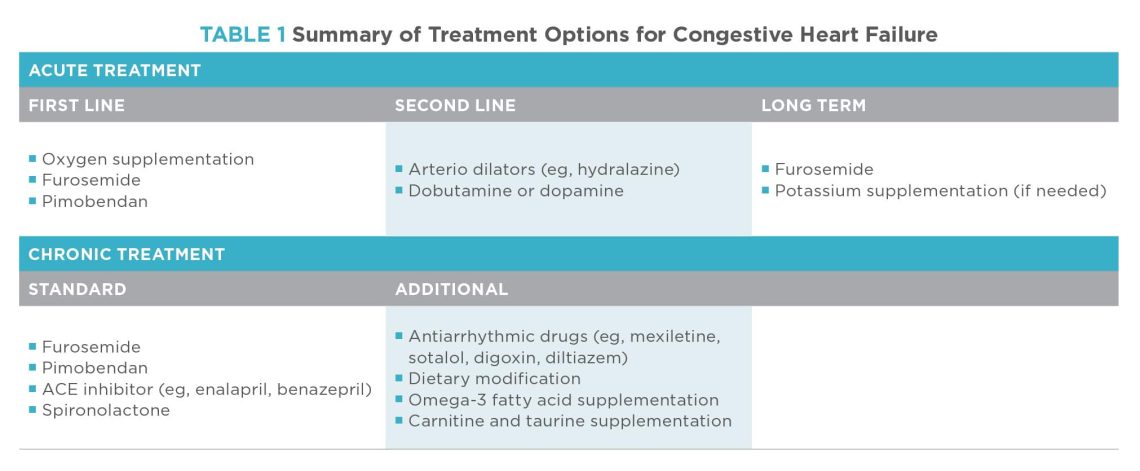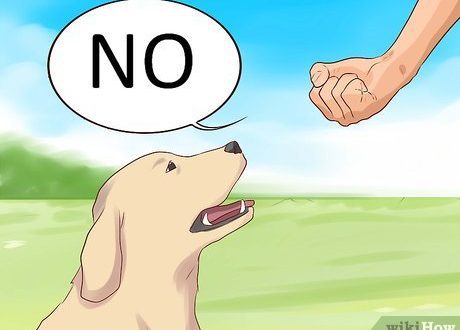
Canine congestive heart failure: prognosis and treatment
The diagnosis of congestive heart failure in a dog can be quite frightening for its owner. Unfortunately, many small and some large breeds are prone to developing this condition as they age. The good news is that with the right treatment and lifestyle, pets with this diagnosis can live for many more years. However, it is important to recognize its symptoms in time so that treatment can be started immediately and the dog has the best chance of a long life.
Contents
What is congestive heart failure (CHF) in a dog
 NMS in dogs develops due to the inability of the heart to pump enough blood to all parts of the body. As a result, blood returns to the lungs, and fluid accumulates in the chest or abdomen. It squeezes the heart and lungs even more, and insufficient oxygen is supplied to the organs and tissues. There are two main types of CHF in dogs:
NMS in dogs develops due to the inability of the heart to pump enough blood to all parts of the body. As a result, blood returns to the lungs, and fluid accumulates in the chest or abdomen. It squeezes the heart and lungs even more, and insufficient oxygen is supplied to the organs and tissues. There are two main types of CHF in dogs:
- Right-sided congestive heart failure in dogs (RDCHF). This condition develops when, due to the contraction of the heart, part of the blood enters the right atrium from the right ventricle through the tricuspid valve instead of entering the lungs for oxygenation. As a result, the main circulatory system overflows with accumulated blood, and fluid accumulates in the abdominal cavity, disrupting the normal functioning of the organs. Excess fluid can also accumulate in the extremities, causing edema, which is called peripheral.
- Canine left-sided congestive heart failure (LCHF). This is the most common type of CHF in dogs, in which blood from the left ventricle leaks back into the left atrium through the mitral valve instead of entering the body’s systemic circulation when the heart beats. This deterioration causes an overload of volume or pressure in the left side of the heart. As a result, fluid seeps into the tissue of the lungs, causing swelling that leads to coughing and difficulty breathing.
Symptoms of congestion in dogs
The Pet Health Network® lists the following common symptoms that may indicate that a dog may have developed congestive heart failure:
- cough;
- constant heavy breathing;
- breathing difficulties;
- rapid breathing, especially at rest;
- unwillingness to move or refusal to exercise;
- rapid onset of fatigue during a walk or during a game;
- severe fatigue;
- bluish tint of the gums;
- bloating;
- hemoptysis;
- collapse.
If your pet shows any of these symptoms, you should immediately take him to the veterinarian for examination.
What causes congestive heart failure in dogs
 The most common cause of congestive heart failure in dogs is congenital heart disease. This means that the disease is genetic and cannot be prevented.
The most common cause of congestive heart failure in dogs is congenital heart disease. This means that the disease is genetic and cannot be prevented.
Many small breeds are genetically predisposed to CHF, including Toy Poodles, Pomeranians, Dachshunds, and Cavalier King Charles Spaniels, Love to Know reports. Small dogs are generally more likely to develop the syndrome because their heart valves degenerate more quickly than larger breeds. However, some large and particularly giant breeds such as St. Bernards, Newfoundlands and Great Danes are prone to develop CHF due to enlarged heart muscles. It is important to understand that congenital congestive heart failure in dogs usually appears in the last years of life, and pets with this condition may appear quite healthy and happy for a long time.
The disease can also occur in a heart weakened by other cardiac pathologies. For this reason, it is important to do everything possible to prevent your pet from developing heart disease, including obesity prevention and preventive treatment of heartworms.
Canine Congestive Heart Failure: Treatment and Diagnosis
If, after examining the dog, the veterinarian finds a heart murmur or other abnormality, they may refer the dog to a veterinary cardiologist or other cardiovascular specialist.
The standard tests for diagnosing CHF are a chest x-ray, an electrocardiogram to evaluate the electrical activity of the heart, and an echocardiogram or ultrasound of the heart. Blood and urine tests are ordered to rule out other possible causes of the dog’s symptoms or comorbidities, as heart disease often accompanies kidney failure.
If your pet is having difficulty breathing, your veterinarian may prescribe oxygen therapy until breathing returns to normal. Hospitalization may be required depending on the amount of oxygen needed.
According to the Cummings Center for Veterinary Medicine at Tufts University, the dog is likely to be prescribed multiple medications as part of the current treatment. These include diuretics to remove excess fluid from the lungs and other parts of the body, angiotensin-converting enzyme (ACE) inhibitors: they have been shown to improve clinical symptoms and increase survival in dogs with CHF; and vasodilators, which are designed to relax the walls of blood vessels and make it easier for the heart to pump blood. In some cases, drugs with a positive inotropic effect are also prescribed to increase heart contractions and normalize blood flow.
Life
Medications are only part of the treatment plan for a dog with congestive heart failure. You should also discuss nutrition with your veterinarian. He can make a number of recommendations depending on the needs of the dog and the optimal level of sodium restriction. Your veterinarian may recommend Prescription Diet® low-sodium foods as a properly balanced diet provides your dog with essential vitamins for good health.
It is necessary to regularly take the dog to the veterinary clinic for monitoring of the heart and lungs, and if taking certain medications, such as diuretics, it may be necessary to monitor kidney function. As for home care, your veterinarian will tell you how to control your dog’s breathing rate at rest and what to do if it is too high.
Stress factors should be eliminated from the dog’s environment as much as possible. While moderate physical activity is safe for the dog in most cases, care must be taken not to allow it to overexert itself or force it to do more than it wants to.
Canine congestive heart failure: prognosis
Currently, there are no effective cures for CHF, and treatment is primarily aimed at improving the quality of life.
Until recently, the prognosis for dogs with congestive heart failure was not very good, but advances in the development of drugs for the treatment of this condition have made it possible to significantly improve it. Proper home care and lifestyle management can help increase survival from months to years. The sooner CHF is diagnosed and treated, the better the dog’s chances of a long life.
CHF is indeed life-threatening for the dog, but timely diagnosis, proper care and treatment go a long way in reducing the risks. This gives the owner and pet more time to enjoy each other’s company.
The best thing you can do for your dog throughout his life is to follow the advice of a veterinarian. Be sure to take your pet to the veterinary clinic for annual checkups, ask questions about his diet, drinking regimen, exercise and additional care.





